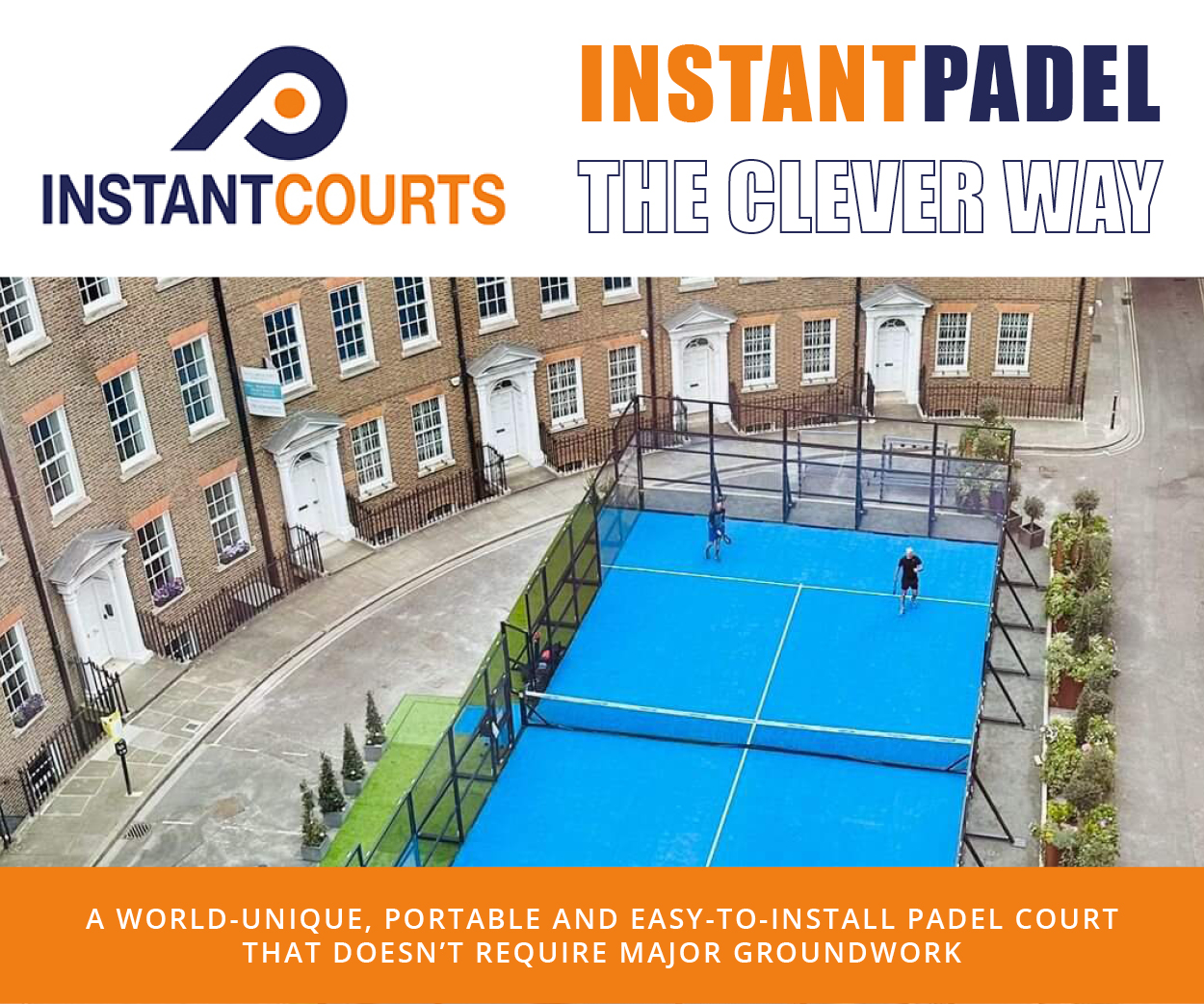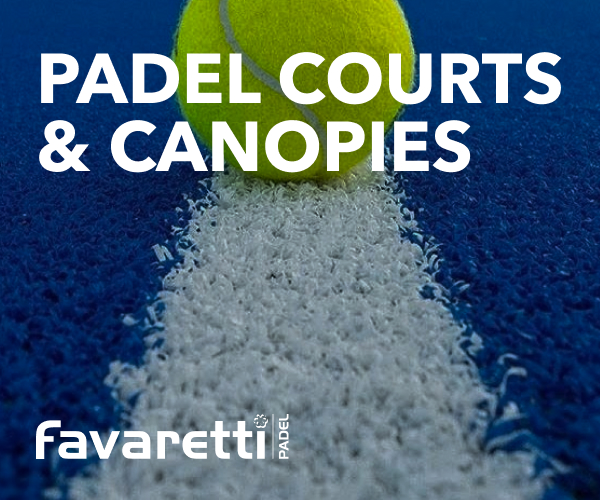What is padel?
Padel is a fusion of tennis and squash that is fun, easy to learn and extremely sociable. It is played in an enclosed court about a third the size of a tennis court.

What are the rules of padel?
Padel is played in doubles format and uses the same scoring as tennis.
How do you serve in padel?
You bounce the ball on the ground and hit underarm, below waist level.
The server must keep at least one foot on the ground when serving and their feet must be behind the service line.
The ball must land in the diagonally opposite service box, as in tennis.
If the ball bounces in the service box then hits the side or back wall, it is a valid serve and must be played by the opposing player. But if it lands in the service box and then hits the wire fencing, it is a fault.
As in tennis, if the ball flicks the net and lands in, it is a let. But if the ball flicks the net, lands in the service box and hits the wire fencing, it is a fault.
You get two serves.

What is in and out in padel?
The ball is out if it hits the walls or wire fence on the opponents’ side of the court before bouncing. Essentially, it must land before touching any perimeter wall on the opposing side.
Players are permitted to play a ball off the walls on their own side of the court – including the back wall – but NOT including the wire fencing.
The lines on the court floor are only a factor on the serve. Thereafter, they do not feature in determining the outcome of a point.

How do you win a point in padel?
If the ball bounces twice on the opposition side of the court.
If the ball strikes an opponent or their teammate while in play.
When your opponent plays a fault (hits the net, hits it out, double faults on serve etc).
Can you volley in padel?
Yes. The ball can be taken out of the air by any player except on the initial serve and the return of serve.

What’s the best shot in padel?
Many people like the bandeja, which is somewhere between a smash and a forehand volley. It is often hit in response to a deep lob, with the purpose of regaining net position.
The word “bandeja” means “tray” in Spanish.
How big is a padel court?
A standard (doubles) padel court measures 20m x 10m.
The wall at each end must be a total height of 4m, 3m of which must be wall made of solid material to hit against.
Regulations allow for variations in the height of the side walls.
What is a padel court floor made from?
Padel courts can be made of porous concrete or cement, synthetic material or artificial grass, provided that it allows a regular bounce of the ball and avoids the accumulation of water.
Most commonly in the UK, court surfaces are made of synthetic turf dressed with sand for sliding and ball grip.

What are padel court walls made from?
Padel courts walls are made from toughened glass at either end and along some of the sides, with a stepped wall area at all four corners along the side wall and a weld mesh section above the end walls and along the middle of each side wall.
How much does a padel court cost?
Costs vary hugely, but with groundwork and court construction, it will cost roughly £50,000 not including a canopy.

What racket is used in padel?
Padel rackets are solid with no strings but have to be perforated in the head (ie holes through the ball-hitting area). They are smaller and more compact than a tennis racket.
Padel rackets come in round, diamond and teardrop shaped heads which have different degrees of balance (low, medium and high) offering more control towards the low end and more power at the high end.

What are padel rackets made from?
Padel rackets are made from a variety of materials. Fibreglass rackets offer more bounce off the racket head and may suit beginners, whereas harder, carbon fibre rackets are less flexible but more durable – and expensive.
Who invented padel?
Versions of padel were played on cruise ships in the 1800s and ‘platform tennis’ using tennis rackets and balls was popular in Washington and New York in the early 20th century, but Mexican Enrique Corcuera is most commonly credited with inventing modern-day padel.
He built the first ever padel court in Acapulco in 1969 at his holiday home, with a high metallic perimeter fence to stop the balls landing on his neighbour’s land.
He called the game Paddle Corcuera – and his wife Viviana made the rules into a book which she gave to him as a birthday present.
Why do people play padel?
It’s fun, easy to play, healthy, and you make friends for life.

Where is padel played?
Padel is now exploding in popularity in many parts of the world but its embedded hot spots are Spain and South America.
Spaniard Alfonso de Hohenlohe, a friend of padel inventor Enrique Corcuera, is credited with bringing padel from Mexico to Spain. He visited Corcuera’s court in Acapulco in 1974 and imported the game to the exclusive Marbella Club, where he built two padel courts.
More soon followed along the Costa del Sol and the sport is now second only to football in popularity throughout the country.
One of the original legion of padel players in Spain was Argentine millionaire, Julio Menditenguia, who also took the game back to his homeland. That was in 1975 – there are now over two million players and 10,000 padel courts in Argentina.

Is padel popular in the UK?
It’s definitely becoming more popular, but the UK is one of the last European countries to really embrace padel. It’s already huge in countries like Spain, Italy, France and Sweden. Germany and the UK are two countries where it has the potential to become very big.

Who are the best British padel players?
The best UK padel players are Tia Norton (world no.124) and Christian Murphy (world no. 164).

Where can I play padel in the UK?
As of October 2022, there were almost 200 padel courts in the UK, with more being planned and built all the time. The sport is experiencing an unprecedented boom not just in Britain but across Europe.
In May 2019, the Lawn Tennis Association officially declared padel a discipline of tennis and installed itself as the sport’s governing body. There is an interactive map of padel courts in the UK on the LTA website.










































